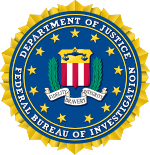UNCLASSIFIED//LAW ENFORCEMENT SENSITIVE

FEDERAL BUREAU OF INVESTIGATION
INTELLIGENCE BULLETIN
FBI Phoenix Field Office
30 May 2019
# # # # # # # # # # # # # #
(U//LES) Anti-Government, Identity Based, and Fringe Political Conspiracy Theories Very Likely Motivate Some Domestic Extremists to Commit Criminal, Sometimes Violent Activity
(U) LAW ENFORCEMENT SENSITIVE: The information marked (U//LES) in this document is the property of the Federal Bureau of Investigation and may be distributed within the federal government (and its contractors), U.S. intelligence, law enforcement, public safety or protection officials, and individuals with a need to know. Distribution beyond these entities without FBI authorization is prohibited. Precautions should be taken to ensure this information is stored and/or destroyed in a manner that precludes unauthorized access. Information bearing the LES caveat may not be used in legal proceedings without first receiving authorization from the originating agency. Recipients are prohibited from subsequently posting the information marked LES on a website on an unclassified network without first obtaining FBI approval.
(U) Domestic extremists employ a number of indicators, some of which may be criminal and others which may constitute the exercise of rights guaranteed by the First Amendment of the US Constitution. The FBI is prohibited from engaging in investigative activity for the sole purpose of monitoring the exercise of constitutional rights.
(U//FOUO) The FBI assesses anti-government, identity based, and fringe political conspiracy theories[1][2] very likely[3] motivate some domestic extremists, wholly or in part, to commit criminal and sometimes violent activity. The FBI further assesses in some cases these conspiracy theories very likely encourage the targeting of specific people, places, and organizations, thereby increasing the likelihood of violence against these targets. These assessments are made with high confidence,[4] based on information from other law enforcement agencies, open source information, court documents, human sources with varying degrees of access and corroboration, and FBI investigations.
(U//FOUO) One key assumption driving these assessments is that certain conspiracy theory narratives tacitly support or legitimize violent action. The FBI also assumes some, but not all individuals or domestic extremists who hold such beliefs will act on them. The FBI assesses these conspiracy theories very likely will emerge, spread, and evolve in the modern information marketplace, occasionally driving both groups and individual extremists to carry out criminal or violent acts. Indicators that may lead to revised judgements or cause a change in the confidence level associated with this assessment include a lack of conspiracy theory-driven criminal or violent activity in the near to long term or significant efforts by major social media companies and websites to remove, regulate, or counter potentially harmful conspiratorial content.
- ↑ (U) See Appendix A: Defining Conspiracy Theories.
- ↑ (U) For an explanation of these terms and a description of all conspiracy theories referenced in this intelligence bulletin, sec Appendix B: Prominent Anti-Government, Identity Based, and Fringe Political Conspiracy Theories.
- ↑ (U) See Appendix C: Expressions of Likelihood.
- ↑ (U) See Appendix D: Confidence in Assessments and Judgments Based on a Body of Information.
UNCLASSIFIED//LAW ENFORCEMENT SENSITIVE
1
FY19 Intelligence Bulletin
Template Effective 10-1-2018
